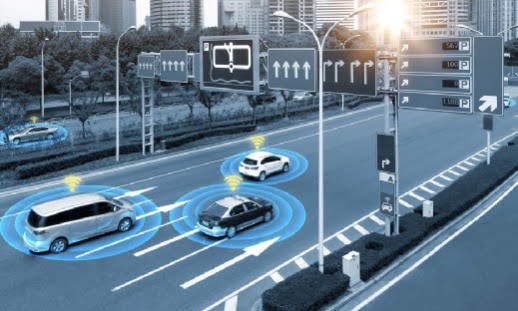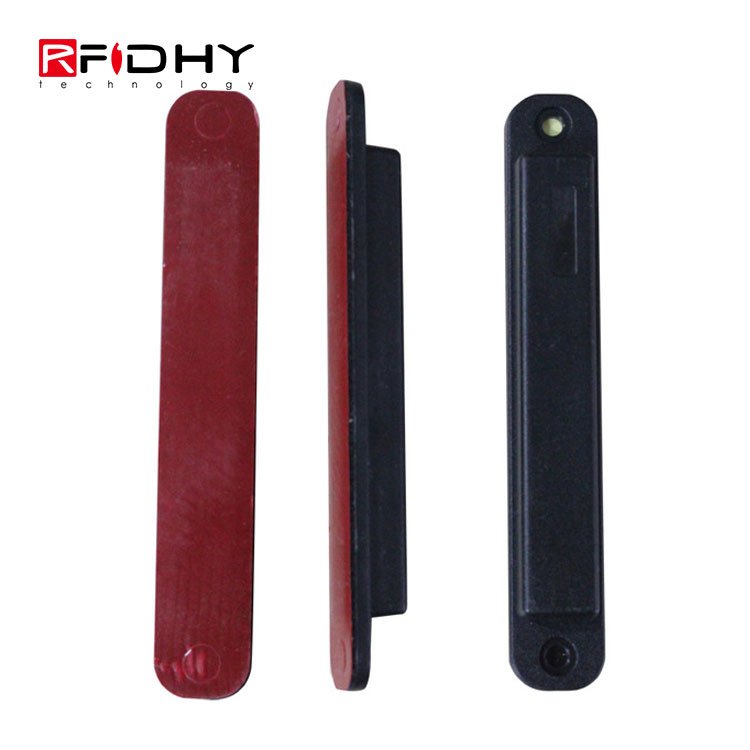German license plate manufacturer TONNJES cooperated with global semiconductor company NXP and AutoID solutions company Kathrin Solutions GmbH in Bavaria, Germany, to develop and manufacture RFID tags and stickers based on RAIN RFID technology, focusing on the field of electronic vehicle identification (referred to as EVI). The goal pursued by TONNJES is to give vehicles around the world a clear identity.
With RFID, cars, trucks and motorcycles can be freely identified in mobile traffic through authorized readers. This innovative technology has replaced the previous method of optical identification with the naked eye or camera. It also opens up new digital possibilities for future transportation and mobility.
EVI can completely change traffic conditions
The bigger the city, the more cars there are, but there has not yet been a final solution that can cope with the huge traffic volume. Jochen Betz, General Manager of TÖNNJES, said: “The global population continues to grow. It is not just megacities with more than 10 million inhabitants that need to focus on handling complex modern traffic management solutions-sooner or later all cities will need them. Doing so. We believe that EVI technology will be the foundation of smart city applications based on efficient and modern process identification functions.”
 The RAIN RFID technology enables wireless communication between the vehicle license plate on one side and the authorized reader on the other side. In addition to targeted traffic management, EVI also innovatively provides sustainable potential in access control, toll collection systems, setting up regional environments, updating bridges and ferry-related modern payment processes, vehicle anti-theft, and anti-counterfeiting license plates.
The RAIN RFID technology enables wireless communication between the vehicle license plate on one side and the authorized reader on the other side. In addition to targeted traffic management, EVI also innovatively provides sustainable potential in access control, toll collection systems, setting up regional environments, updating bridges and ferry-related modern payment processes, vehicle anti-theft, and anti-counterfeiting license plates.
In recent years, TONNJES has also developed software and hardware as a key prerequisite for EVI. It has cooperated with Kathrein Solutions and NXP to produce RFID license plate IDePLATE and windshield sticker IDeSTIX. This technology has been put into practice in many different applications in various countries. For example, Saudi Arabian oil company Saudi Aramco uses IDeSTIX to control access to its business premises; in the Philippines, scooters and motorcycles are equipped with IDeSTIX headlight tags from TONNJES.
Bates explained: “Scooters and motorcycles are a very popular means of transportation, especially in Asia. IDeSTIX headlight tags are an effective and reliable way to register and identify all these vehicles.”
Flexible and user-friendly: Passive chips operate in stationary and moving traffic
Whether it is an anti-counterfeiting license plate or a glass sticker, they will be destroyed when they are removed. They are all equipped with a passive RAIN RFID chip UcodeDNA® customized by NXP. It transmits data within a few meters in a non-contact and safe manner. The chip contains a unique encrypted identification code that can be decoded by authorized readers in stationary and moving traffic.
 Christian Schnebinger, deputy sales director of Kathrein Solutions, said: “Every country should strive to register all vehicles nationwide. This can ensure safety and transparency. If the vehicle is passed through a passive UHF Once the RFID transponder is registered, it can be further developed for applications such as non-stop toll collection, road toll collection, parking, refueling, and access control. “Passive UHF RFID is a global standard that is flexible and user-friendly. And the battery-less transponder does not require any maintenance.
Christian Schnebinger, deputy sales director of Kathrein Solutions, said: “Every country should strive to register all vehicles nationwide. This can ensure safety and transparency. If the vehicle is passed through a passive UHF Once the RFID transponder is registered, it can be further developed for applications such as non-stop toll collection, road toll collection, parking, refueling, and access control. “Passive UHF RFID is a global standard that is flexible and user-friendly. And the battery-less transponder does not require any maintenance.
In the future, the importance of electronic vehicle identification will increase day by day. The latest statistics from the German Federal Agency for Freight Transport (BAG) also emphasize the high importance of EVI to highways. It is estimated that by 2023, Germany’s road freight volume alone will reach about 4 billion tons. BAG stated that COVID-19 also has a direct impact on truck mileage. Since the beginning of the epidemic, the infection rate in Germany has risen by 5.5%, which may be due to the increase in freight volumes.
RFID technology is the key to digitization
NXP’s Ralf Kodritsch explained: “With our technology and comprehensive expertise, we are helping relevant departments to more efficiently carry out vehicle registration and other work in the future.” He believes that the application of RFID technology is also for the comprehensive and rapid realization of the entire vehicle. The digitization of the recognition field has laid an ideal foundation.
“Key areas such as public safety or anti-theft are often mentioned in cooperative discussions. These are of high priority in our considerations. In fact, end users can also see tangible benefits, such as automatic access to parking lots, or automatically refuel by reading RFID tags.” In addition, in view of the “urgent need” of digitization, electronic records may also be a major improvement to the status quo. So far, visibility and weather conditions have played a vital role in optical recording and have greatly reduced the rate of prosecution in speeding cases.





